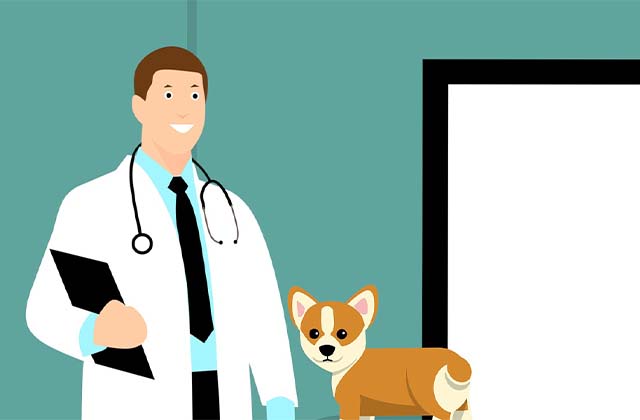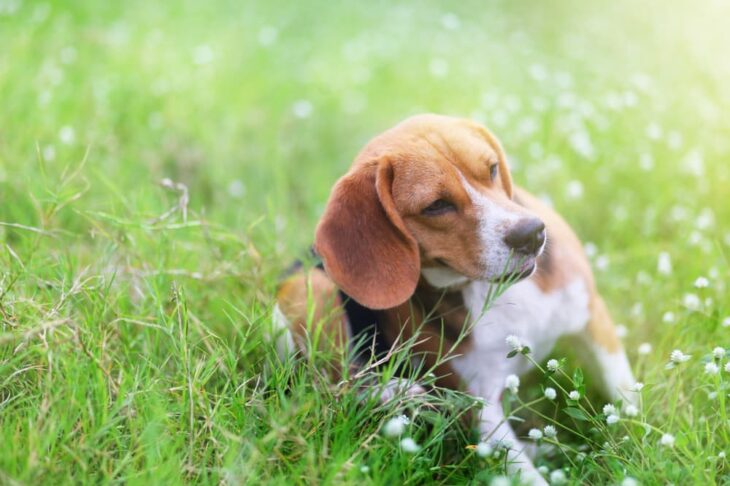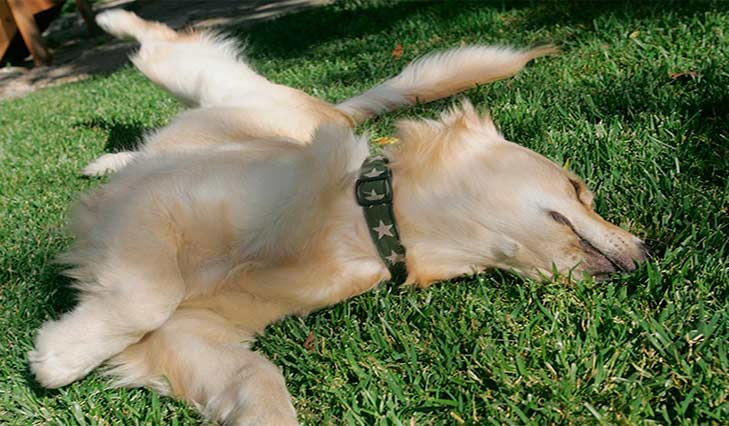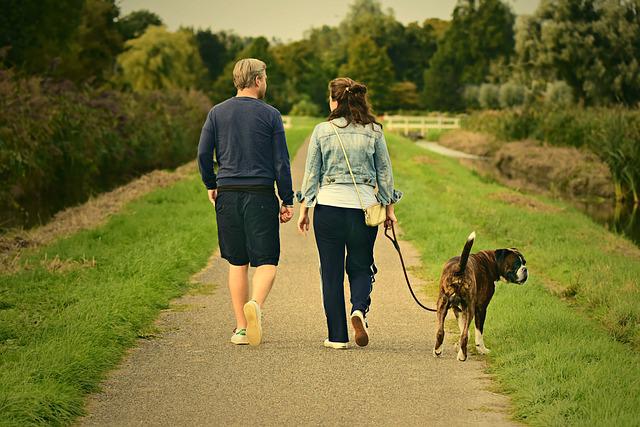
My Dog Keeps Hiccuping And Swallowing: Possible Causes And What To Do
Why does my dog keep hiccuping and swallowing?
If you notice your dog having hiccups or your dog keeps swallowing like hiccups for more than a month or two, then he or she may have chronic acid reflux. This is serious and when it occurs over a few months, it can develop into a health condition called esophagitis or gastroesophageal reflux disease (GERD).
Table of Contents
My Dog Keeps Hiccuping And Swallowing
Rapid gulping can be heard during the swallowing process. After eating a meal and experiencing acid reflux, dogs can gulp and hiccup like this every 15 to 30 seconds. This hiccuping and swallowing pattern may persist for an hour or more.
You can take a number of actions to make your dog’s hiccuping and swallowing easier.
Looking at what you are feeding your dog is the first thing to try. Their eating habits may result in acid reflux, which would explain this behavior.
Causes Of My Dog Keep Gagging And Hiccuping?
If your dog is gagging instead of just hiccuping, this is a sign of ongoing acid reflux. Your dog may get esophagitis or gastroesophageal reflux disease (GERD) if the gagging lasts for longer than a month or two.
There may be additional underlying causes in addition to acid reflux, which is the primary cause of hiccups and gagging:
- Your dog is infected.
- A specific drug that your dog is taking gives him the shakes.
- Your dog might have consumed a caustic chemical that corrodes the lining of its esophagus.
- foreign objects being consumed.
- a recent medical procedure’s anesthesia.
If your dog has gastroesophageal reflux disease, there are many treatments you can try, such as pre and probiotics, digestive enzymes, and chiropractic adjustments.
What To Do About Hiccuping And Swallowing In Dogs
When they experience oesophageal reflux, dogs swallow quickly to push down acids. This shouldn’t be disregarded because swallowing the acid can harm the esophageal lining in your dog and cause inflammation.
If your dog has acid reflux, call your vet right away.
Numerous digestive problems in your dog can result in acid reflux:
- a hiatal hernia, in which the top of your dog’s stomach protrudes through a hole in the diaphragm.
- A weakened or damaged sphincter can result from birth or surgery.
- Intolerance to the food they have just consumed.
- being sensitive to particular food ingredients.
- poor digestion and metabolic diseases.
- failure of the liver or kidneys.
- Obesity.
- The stomach of your dog is not being emptied properly.
Acid Reflux Symptoms
If your dog exhibits all or the majority of these symptoms, you can be certain they are experiencing acid reflux:
- licking and gagging that never stops.
- Lip licking and hiccups.
- air gulping can be heard.
- The regurgitation of undigested food.
- the after-meal heaving and panting.
- a post-meal pacing up and down.
- Throwing up bile.
- Loss of appetite.
- Anorexia.
- eating excessive amounts of grass.
- Depression.
Other Medical Conditions When My Dog Keeps Hiccuping And Swallowing
Unfortunately, excessive hiccuping and swallowing can also be a sign of underlying problems. These are typically incredibly uncommon and shouldn’t cause concern, but if the symptoms persist for a prolonged period of time, they may need to be ruled out.
These medical conditions consist of:
Respiratory Defects
Your dog might have been born with a respiratory defect, which might not manifest itself until later in life.
He might swallow a lot and even hiccup when he’s having trouble breathing in order to try to get more air. A respiratory defect may have different treatments depending on what’s happening.
Pneumonia
Pneumonia can develop suddenly and exhibit the same symptoms as a respiratory disorder. Your dog will be having trouble taking a full breath, which could cause breathing and swallowing problems.
If the pneumonia is not serious, it is typically treated with a course of antibiotics, which would allow the illness and difficulty swallowing to be cured rather quickly.
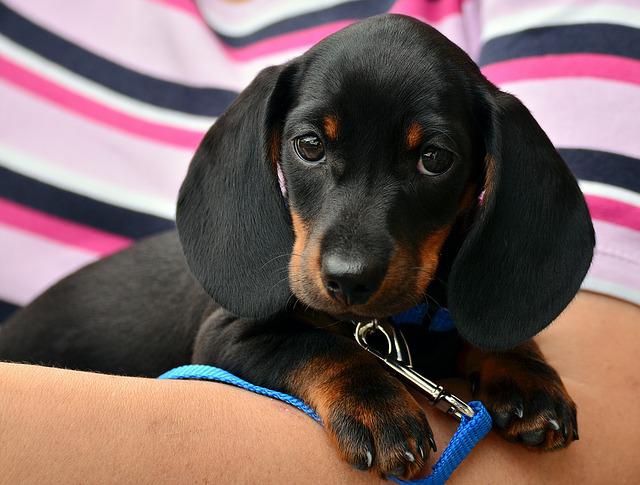
Asthma
Another breathing issue that will cause your dog to hiccup and swallow too much air is asthma.
An antibiotic course won’t be able to cure asthma because it is a chronic illness. Your dog may need breathing treatments instead to keep it under control.
Pericarditis
While pericarditis affects the heart, a dog who has it will also experience breathing problems, which could manifest as difficulty swallowing.
Pericarditis is an inflammation of the sac that surrounds and supports the heart. When this swells, additional pressure is placed on the heart, which makes it more difficult for the dog to breathe and causes the symptoms of hiccupping and swallowing.
Heat Stroke
Heat stroke is a very serious condition. When a body gets to the point where it is about to shut down from heat exhaustion.
The dog may be swallowing excessively because he may be thirsty but unable to communicate that he needs a drink of water due to confusion.
A valid concern about your dog’s health may arise if the environment in which you and your dog are traveling is extremely hot.
If that’s the case, take your dog to the vet right away. Rapid death is possible from heatstroke.
When My Dog Hiccups And Swallows Repeatedly, How Can I Comfort Her?
Don’t overthink the situation. You must determine how frequently your dog hiccups. Begin by slowly and gently patting your dog’s belly and rubbing its belly. Try providing some water and watch to see if your dog shows any interest in sipping it. If your dog expresses interest, let them sip water at their own pace. If your dog is hesitant to drink water, do not force them. Instead, take them for a quick walk, preferably inside somewhere less crowded. Your dog’s condition might get worse if there are too many people nearby because they might terrify them.
Read about: How Much Insulin Does It Take To Kill A Dog?
Go To The Vet When My Dog Keeps Hiccuping And Swallowing
Make sure you are well prepared to discuss your concerns with the veterinarian before you go. It can be very upsetting for a pet owner to enter and then feel as though their worries are unfounded and leave with no answers.
Instead, get ready for your visit as though you were going to a crucial business meeting. Take accurate notes about your activities.
Make sure you bring a video with you that illustrates your concerns from various angles since the dog might not be able to perform the swallowing and hiccupping during the appointment.
Additionally, keep a brief log of the events you have witnessed, including how frequently you witnessed them and how long they continued.
Note the duration of the hiccupping, the time, and what your dog was doing just before it happened, if it has been happening for two hours every day.
Your veterinarian will be better able to address your concerns after taking into account all of this information and developing a timeline.
It will be much easier for you to help your dog sooner and avoid any unnecessary delays if you have proof of the situation.
Your veterinarian will undoubtedly accept your descriptions of the symptoms and your worries, but if you let them see what you are observing at home, the diagnosis stage of the procedure will go much more smoothly and easily, allowing your pup to receive the assistance he needs much sooner.
Additionally, you should visit a veterinarian immediately with your dog. Avoid attempting numerous over-the-counter medications or home remedies that could exacerbate an existing condition or harm your dog.
Go with the medical and scientific advice rather than trying something that you think might work on humans because your veterinarian will already be aware of what your dog can and cannot eat.
Call your veterinarian and explain that your dog is hiccupping and swallowing, and then proceed from there.
Taking a car, with tickets costing an average of 18 USD and a 3-hour travel time, is the fastest way to travel from Raleigh to Myrtle Beach.
What Are Hiccups?
Uncontrollable contractions or spasms of the diaphragm cause hiccups. Same applies to people. Separating the chest from the abdomen is the diaphragm, which has a dome-like shape.
Respiration support is a function of the diaphragm. So, when your dog takes a breath, the diaphragm will move downward to make room for the lungs to fill up with air.
The diaphragm realizes its position and moves up into the chest cavity when the dog exhales. Unless there are hiccups, this movement is constant, smooth, and regular.
When the diaphragm spasms for whatever reason, hiccups are the result, disrupting the rhythm of breathing in and out.
Dogs can get hiccups from a few different sources, including stress, poor sleeping habits, and even going without meals for a long time.
Any significant disruption to your routine, including dietary changes, the addition of medications, or any other significant change, can affect your body and the function of your diaphragm.
The hiccups will stop when the diaphragm stops spasming. It may just take time for your dog, just as it does for some other people.
Despite the difficulty in determining the cause, you should feel free to let your dog roam around.
While keeping the dog from being distracted from the hiccups, it should help burn off any excess energy. Both dogs and humans tend to stop hiccuping when their attention is taken elsewhere.
Puppies
You should start by asking yourself how old your dog is. Puppies have the drawback that they are constantly expanding.
Puppies’ bodies and stomachs move a lot, similar to how it is with human babies, which can lead to spasms, especially right after eating.
Hiccups are a common side effect of many puppies who inhale their food and eat as quickly as they can. This is completely typical.
If your puppy continues to eat too quickly, you might want to consider getting a slow feeder bowl, which forces dogs to eat more slowly and makes digestion easier for them.
If they quickly down a large amount of water, the same thing will take place. Their diaphragm will spasm, but this is completely normal and of no concern.
Keep your puppy’s water in a smaller bowl so that he can’t drink as much at once if he is drinking so much that he is vomiting or just experiencing hiccups all the time.
However, if you use a smaller bowl, you will have to refill it more frequently, so be sure you are ready to continue working in that direction.
Puppies’ organs are not fully developed, meaning they are not as big or as functional as they will be as adults because of this. Puppies are also less developed than adult dogs.
As a result, hiccups might emerge unexpectedly as the body tries to figure out its next course of action.
Adult Dogs
Adult dogs are much less likely than puppies to experience hiccups in a typical situation.
Adult dogs are less likely to overeat or drink than puppies. Additionally, puppies hiccup more because they have so much more energy to expend.
You shouldn’t be concerned if your adult dog occasionally hiccups.
But if your adult dog is hiccupping and swallowing a lot, you will have more reason to look into what is wrong with your dog. Humans do that, too.
5 Facts You Should Know About Your Dog’s Hiccuping
When your dog breathes in, the diaphragm tightens and descends, allowing the lungs to expand within the chest cavity. When your dog exhales, it enters a relaxed state and moves a little bit over the chest cavity. When the diaphragm cramps, this normally smooth internal process is thrown off, resulting in dog hiccups.
Here are five things you should be aware of regarding your dog’s hiccuping and swallowing:
- The majority of the time, dog hiccups resolve on their own and are not dangerous.
- It typically lasts between a few seconds and 15–20 minutes.
- Giving a dog a cold drink of water, gently rubbing the dog’s chest or throat, or applying pressure to the dog’s stomach are a few techniques for stopping hiccups in dogs.
- Your dog will hiccup until things settle down as the smooth respiratory internal process is disturbed by the diaphragm spasm.
- Hiccups in dogs can occasionally be a sign of a more serious medical issue, such as an obstruction in the airway or a digestive system issue.
Conclusion
Why is my dog constantly swallowing and hiccuping?
Acid reflux, also known as a gastroesophageal influx in dogs, is accompanied by hiccuping and difficulty swallowing. The primary reason for swallowing and sporadic throat spasms that occur along with hiccups is this.

